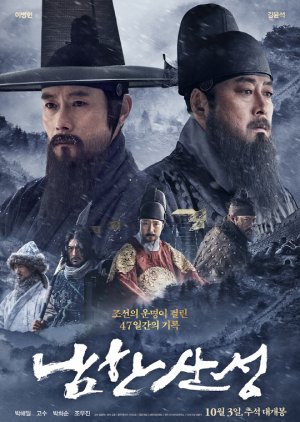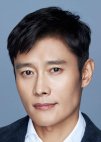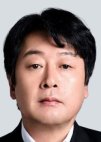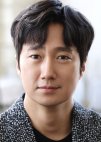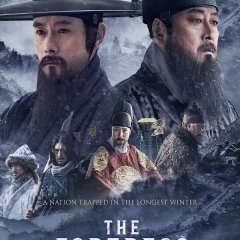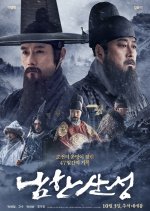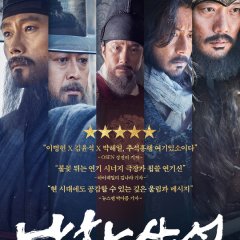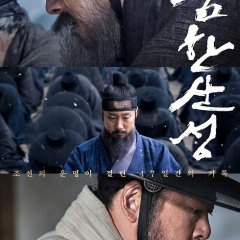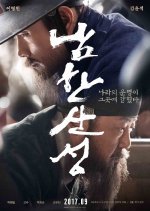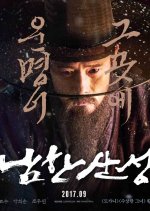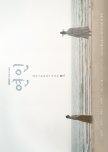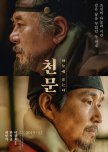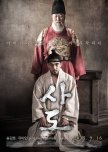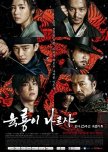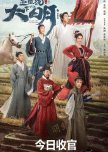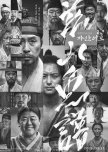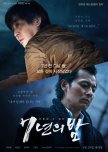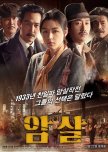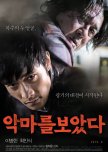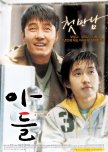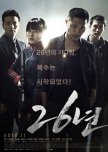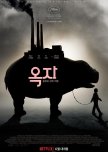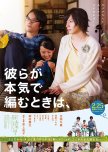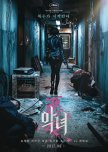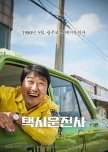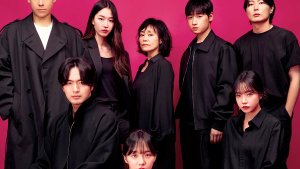 "Squid Game Season 2" Unveils Additional Main Cast in On-Set Script Reading
"Squid Game Season 2" Unveils Additional Main Cast in On-Set Script Reading During the Qing Invasion of Korea, the king and the court take refuge in a mountain fortress, where they find themselves stranded in the cold and surrounded by the enemy. The king’s dilemma deepens as his people in the fortress start dying from cold and hunger. In 1636, Qing China invades Korea with 150,000 troops. The Korean court flees the capital to take shelter in the Namhan Fortress, located in treacherous mountains outside the city. The Qing army, led by General Yong Gol Dae, quickly surrounds the fortress, leaving the king and the court stranded in a prolonged standoff. For a truce, the Qing general makes a humiliating proposal of sending the Crown Prince out as a hostage. Unable to move forward or fight the outnumbering enemy, the people of the fortress start dying from cold and hunger. Between the interior minister, who emphasizes the king’s duty to protect the lives of his subjects regardless of humiliation, and the minister of rites, who maintains that they must fight to death for the greater cause, the king must make a grave choice. (Source: CJ Entertainment) Edit Translation
- English
- Arabic
- Español
- magyar / magyar nyelv
- Native Title: 남한산성
- Also Known As: South Castle , Namhansanseong
- Screenwriter & Director: Hwang Dong Hyuk
- Genres: Military, Historical, War, Political
Where to Watch The Fortress
Cast & Credits
- Lee Byung HunChoi Myung GilMain Role
- Kim Yoon Seok Main Role
- Park Hae IlKing In JoMain Role
- Go Soo Main Role
- Park Hee Soon Main Role
- Song Young ChangKim RyuSupport Role
Reviews

An evocative and powerful contemplation of war, honor, pragmatism, and defeat
"When the winter is over, the dandelions will bloom."This is my personal favorite Korean film and I consider this to be one of the best films I’ve seen from any country. I admit it might not be everyone’s cup of tea. It’s long and it’s not some Hollywood-esque war movie full of action and heroics. It’s a rather quiet and understated look at people in a dire situation being forced to choose between honor and pragmatism and come to terms with the fact that they’ve lost the war (I don’t consider this a spoiler, because the Korean audience would know this from the outset). It’s about the responsibility of leaders and the suffering of soldiers. Though rather bleak, it’s not depressing or entirely without hope.
Hwang Dong Hyuk, who both wrote and a directed this film, has constructed a powerful and compelling work. There were scenes, images, and lines that lingered with me long after the credits rolled.
It’s quite dialogue-heavy for a war movie, as this story is really centered around ministers’ debates before the king, while the soldiers endure the cold, at the mercy of the king’s final decision. This may sound boring, but there is real tension and emotion in these scenes, especially as they build towards the climax. This is a film that takes its time, rather than moving rapidly from one action sequence to the next. Its depiction of enduring through a long siege in the dead of winter often pauses on the mundane; the king getting dressed, soldiers trudging through the snow. But these details are important to the storytelling and are part of the reason the audience at times feels that they are living this experience as well.
The acting is excellent. Park Hae Il plays a conflicted king, backed into a corner where he has no good options, while Lee Byung Hun and Kim Yoon Seok offer moving performances as ideologically opposed ministers. You can truly feel the weight of their characters’ beliefs and concerns for their country. There is more depth of emotion in these portrayals than you might initially expect from these rather stoic old men.
The soundtrack, composed by Ryuichi Sakamoto, is frequently more atmospheric than melodic. Silence, punctuated by eire, icy winds, often envelops life at the fortress. In these parts, instrumentation is used sparingly. During the battle sequences the music becomes heavy, tense, and dissonant. In the moments the soundtrack does turn towards melody, it is gorgeous and poignant, though still has a slowness and vastness suited to the gravity of the events and setting. The cinematography by Kim Ji Yong is also perfectly suited to evoking the starkness of the situation. Somber silhouettes, snowy landscapes, and bleak colors dominate this film. These images are offset by warm-toned, fire-lit shots that offer contrast, so that when the warmth is absent, you feel the coldness even more.
Though the action scenes are well-executed, if you go into this film expecting glory and epic battles, you’re sure to be disappointed. This is a film that explores contrasting ideologies, the king’s responsibility to his people, and how the decisions of leaders impact those below them. If you’re seeking an antidote to overly-glorified all-action-no-substance portrayals of war, this realistic and contemplative film is likely what you’re looking for.
Content warning: This film is a bit gory at points (though I am someone who is pretty sensitive to those things). However, these scenes are used somewhat sparingly, and the violence is not gratuitous, rather it is used to depict the harsh reality of war.

A silly movie that takes itself way too seriously
This movie did everything wrong. For example:-Canons shoot at wall once, it's enough to crumble it. WRONG! It takes many days of bombarding a single section of wall to collapse it. The movie had such an opportunity to portray what it is like to be under constant bombardment, and didn't take it.
-A single breach is portrayed as a big deal. WRONG! A single breach is a bottleneck that's disastrous for the attacker more than the defender.
-No one is fighting or marching in any sort of formation, ever. Soldiers march in a loose group of rifles, crossbowmen, spearmen and swordsmen.
-Even when cavalry charges at them, the rifles stay at front, and at no point are replaced by pikemen/spearmen. Could it be that koreans were so stupid that they didn't know pike and shoot formations in 1630's? Is this what this movie is saying?
-Somehow, everyone hears the officer shouting orders in the middle of the battle.
-Armor is like paper.
-Most footsoldiers are armed with swords, not polearms.
-They send the blacksmith on a suicidal mission. Why the blacksmith? The movie also implies he was the only blacksmith the fortress had.
-Little is shown from the perspective of common soldiers. It's just constant back and forth between the king and his one-dimensional advisors. Also, very funny how the advisors can echo the words their representative said in unison. Did they practice for it?
-The movie shows from the very beginning that the plan to defend that fortress was always a VERY BAD IDEA. It's underlined at every possible moment, to the point it's silly. It makes everyone who decided to defend despite such overwhelming odds look like a suicidal imbecile.
-Thus, when they finally surrender, the scene of king sloooowly prostrating himself before the Khan is not sad nor tragic nor melodramatic. It's just silly. It was the obvious outcome. And if it wasn't supposed to be obvious, the movie made no effort in portraying that, we weren't given any clue, any number, any ray of hope that maybe the idea to defend wasn't so bad after all.
-At the end of the movie, the conservative proponent of defence says "things will change for the better only when we all pass, and king passes, and kingdom passes, and all old things pass away....". Yeee, just drop feudalism and install democracy already. That's totally what a noble in 17th-century korea would have said.
And probably more, but whatever. It's a bad movie, it lacks historical authenticity, and fails to makes us care about the conflict portrayed. You cheer for the antagonists, but probably because you don't see them enough to witness them doing dumb and illogical things like the main characters do.

